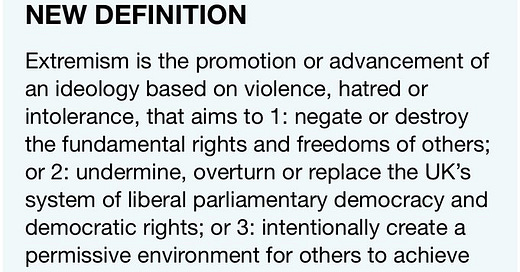The Thin Line: Redefining Extremism and the Assault on Free Speech
Unraveling the Ambiguity: How New Definitions Threaten the Fabric of Democracy
It's been a busy day so far, yet there is so much more to be done, and I suspect it's going to be a heated one. Perhaps I should try not to get too heated lest I be branded an "extremist."
Because yes, the much-awaited new definition of "extremism" has just dropped, and I'll be honest, I find it about as appealing and mind-numbingly confusing as a Hanson…




